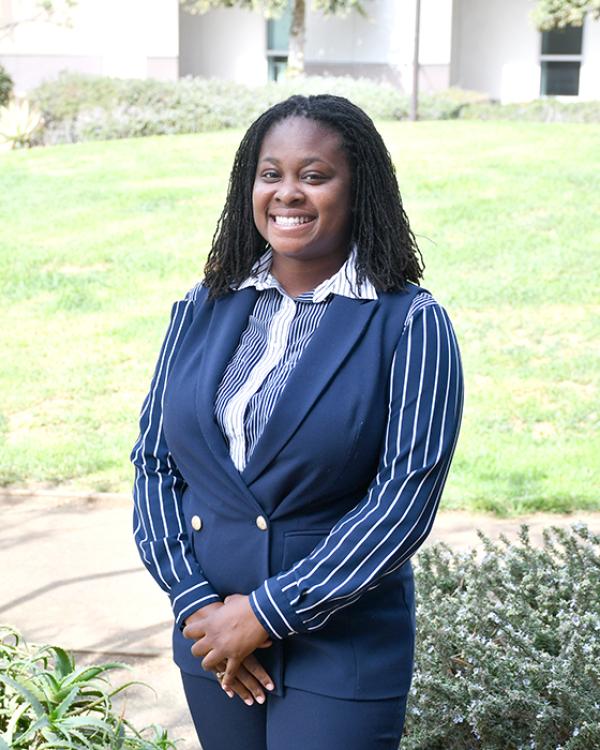
“I always wanted to be a teacher,” Shemiyah Holland, new doctoral student in the Department of Counseling, Clinical and School Psychology, explains. After earning her Bachelor of Arts in Psychology at Claflin University, she worked as a substitute teacher in her home state of Maryland, and eventually applied for a full-time teaching position at her former elementary school. However, her interview with her former principal did not go as planned. Holland recalls, “She told me, ‘Why are you applying for this teaching job? You need to become a school psychologist.’”
Now, Holland is working on becoming even more than a school psychologist. As a first-year doctoral student, she is one of three School Psychology doctoral students selected for Project TEAMS, a special cohort of scholars from the Gevirtz Graduate School of Education in collaboration with Boston University. Project TEAMS will prepare leaders like Holland to produce new research addressing culturally, linguistically, and racially diverse students’ mental health, particularly students with disabilities (SWDs) and emotional and behavioral disorders (EBDs). While Holland has established herself as a dedicated scholar with Project TEAMS, her journey in education began long before arriving at UC Santa Barbara.
Although her original dreams of becoming a teacher were sidetracked after her undergraduate studies, Holland was hired as a paraprofessional, helping students with cognitive difficulties, which opened her eyes to a path in school psychology. After receiving encouragement and support from professionals in the field, Holland applied to Bowie State University where she earned her master’s in School Psychology.
Applying her knowledge to the field, Holland worked for two years in a structured learning environment (SLE) program for students with high-functioning autism, realizing how difficult social cues were for her students. “A lot of students would come to me and say, ‘I just want friends,’” she remembers. “I loved helping students develop those skills so they could be successful and make those lasting bonds. We would talk about what a basic conversation looks like and how to keep it going. We’d go over mannerisms and the social cues that most people overlook.” And her counseling paid off: her students began reporting back with exciting stories of new friends and conversations. “I could see them make gains after a few weeks,” she says. “Just hearing about those little milestones was so fulfilling for me. I wanted to go to work just to be with my students.”
When applying for graduate schools, Holland was drawn to Dr. Shane Jimerson’s work with Project TEAMS. Jimerson, a Professor in the Department of Counseling, Clinical, & School Psychology, is the Director of Academic Program Development for the project. His research interests and focus on mentoring future faculty members closely aligned with Holland’s goal—combining her loves for teaching and psychology to become a professor. “[Dr. Jimerson] is an amazing advocate for school psychology,” she says. “I’m looking forward to working with his research team and helping students with their mental health.”
A long way from her hometown in Maryland, Holland is still adjusting to Santa Barbara. “Everybody’s been very welcoming and supportive,” she says. “I feel like I made a great decision coming here.” Though Holland is thrilled to be at UCSB, she describes experiencing a culture shock, transitioning from Historically Black Colleges and Universities (HBCUs) to a Predominantly White Institution (PWI). She finds herself code-switching often, explaining, “It is a little nerve-wracking for me, trying to find my place within the community. I always just feel on. I’m always trying to present myself in a certain way.”
Nevertheless, Holland hopes to use her experience as a minority on-campus to empower Black and Brown students interested in school psychology. That’s a goal perfectly in line with Project TEAMS’ mission to emphasize equity and inclusion of culturally, linguistically and racially minoritized students. “It’s important to diversify school psychology and have representation at the table for minorities,” she says. “[Students] might feel very alone, but I want them to know, ‘You have people who are on your side rooting for you.’ I want to be that professor who supports their students in every aspect, even beyond the years that they’re in the classroom.”